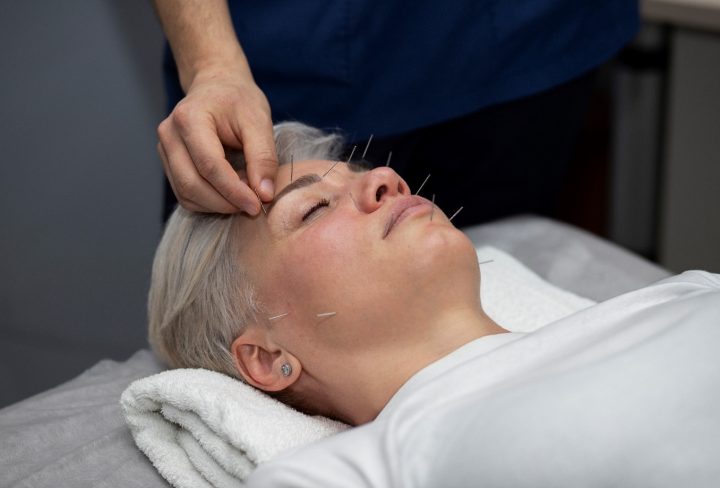Migraine is a neurological disorder that causes recurring headaches, often accompanied by other symptoms such as nausea, vomiting, and sensitivity to light and sound.
Symptoms
- Throbbing or pulsating pain on one or both sides of the head.
- Sensitivity to light, sound, or smells.
- Nausea, vomiting, or both.
- Blurred vision or visual disturbances.
- Light-headedness, sometimes followed by fainting.
- Sensation of pins and needles in the arms or legs.
- Speech difficulty.
Causes
- Genetics: A family history of migraine increases the risk of developing the condition.
- Hormonal changes: Women are more likely to experience migraines due to changes in hormone levels during menstruation, pregnancy, or menopause.
- Environmental factors: Bright lights, loud noises, strong smells, and certain foods can trigger migraines.
- Stress: Emotional or physical stress can trigger migraines in some people.
Treatment
Acupuncture is a proven treatment for migraines, utilizing nerve stimulation and regulating serotonin levels to alleviate pain. Fine needles are strategically placed on specific points, providing relief, reducing frequency, and intensity. Regular sessions with a qualified acupuncturist are recommended for optimal and long-lasting results in migraine management.
Prevention
- Identify and avoid triggers such as certain foods, bright lights, and loud noises.
- Get regular exercise.
- Establish a regular sleep pattern.
- Reduce stress through relaxation techniques such as meditation or yoga.
- Take preventive medication as prescribed by your doctor.
Myths and Facts
Myth: Migraines are just bad headaches.
Fact: Migraines are a neurological disorder with a range of symptoms that can significantly affect quality of life.
Myth: Migraines only affect women.
Fact: While women are more likely to experience migraines, men can also suffer from this condition.
Myth: Migraines can be cured with medication or acupuncture.
Fact: There is no cure for migraines, but medication and acupuncture and lifestyle changes can help manage symptoms and prevent future attacks.
Frequently Asked Questions about Migraine
Q: Are migraines hereditary?
A: Yes, there is a genetic component to migraines, and having a family history of migraines increases the risk of developing the condition.
Q: Can migraines be prevented?
A: Yes, identifying and avoiding triggers, getting regular exercise, establishing a regular sleep pattern, and taking preventive medication can all help prevent migraines.
Q: How long do migraines last?
A: Migraines can last anywhere from a few hours to several days.

